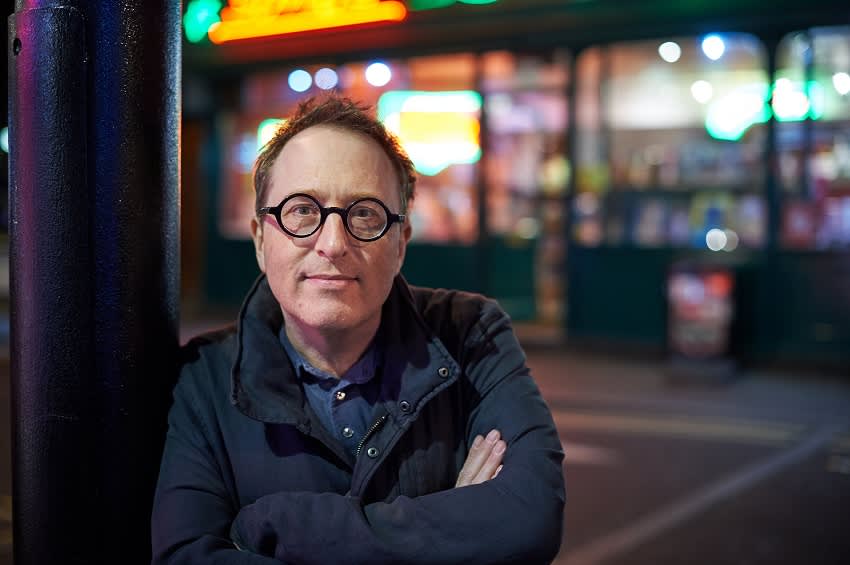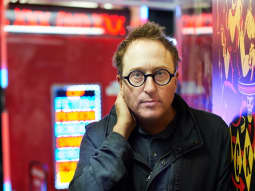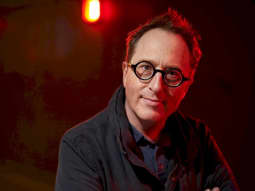Jon Ronson enters worlds of the vilified and the ostracised – whether rightly or wrongly – to create what is quite rightly considered some of the most interesting social documentary journalism ever written. From his courageous 2001 exploration of the world of fringe political views, Them: Adventures with Extremists, to his world-renowned examination of outlandish military experiments, The Men Who Stare at Goats, Jon has always familiarised the near-unknowable with a rare and uncomplicated skill. His Psychopath Night live show, which expands on his bestseller The Psychopath Test, comes to the New Theatre in October – here, Jack Rayner speaks to Jon to find out more.
For a project like The Psychopath Test, where your subject is scientifically contentious, how do you approach the matter from a non-academic background?
I think there is value in a fresh eye coming into a world like that, as long as you're smart about it. Particularly on the subject of mental health. Tonally, it's incredibly important. I tried to make the story funny whilst remaining respectful, which is obviously very high on the list of priorities. I think the reason why I liked making The Psychopath Test so much is that it's got a sort of Kurt Vonnegut sense of absurdity to it, without at any point trying to diminish the complexity of the subject. As I was writing the book, I was just as critical of my own viewpoint as I was of others, because I became a little drunk off my own psychopathic experience... I think if I hadn't turned the lens onto my own biases, I think the book would've been difficult.
How did the academic community respond to the book?
I would say around 90% of mental health professionals loved it and embraced it, and at my Psychopath Nights shows, there are always a lot of people from the world of mental health – patients and clinicians. Overwhelmingly, it has been a positive response. There are, of course, a few naysayers who felt that somebody like me shouldn't be entering their world because they're experts and I'm not, but they have been in the minority. I don't think the book would have lasted as long as it has if that wasn't the case.
How do you adapt your written projects on to the stage?
I learned early on that most authors are not good at being onstage – they tend to bury their heads in the book and just read out a long passage, barely making eye contact with the audience. I thought I could do a little better than that, so I tried to be a little funnier and more involved, tell different stories, and so on. After a while I thought about different methods of storytelling onstage, showing movie clips, bringing guests onstage... What happened with Psychopath Nights is that I did a couple of nights in London at Leicester Square Theatre, and there were two women who I'd interview separately. Neither of them appear in The Psychopath Test, but their stories very much inspired the book, so I invited them onto the stage. I don't like to give too much away, but their stories are in a way contradictory, as well as jaw-dropping, and they paint a fascinating picture of the nature of the world of mental health. One story is very pro-mental health labelling, the other very anti-mental health labelling. At the shows in London, I interviewed both of the women onstage, and it just worked and was very coherent. It's an interesting show both for people who have read the book and for those who haven't.
Your style of writing involves getting in-depth into what has been, in your career, quite a wide variety of subjects. What first pulls you in to a subject?
It has been a wide variety of subjects, but I would say that there is a sort of coherence to them. Quite often I write about demonised people, trying to humanise them, and going into mysterious places that I don't understand. I think there's a particular coherence between The Psychopath Test and So, You've Been Publicly Shamed. Unfortunately, if I told you the real origin story of The Psychopath Test, I'd be giving away the incredible story of my first guest at the show.
How does your methodology work when you start a book? What sort of spark leads you into writing?
I've had that sort of spark of inspiration a few times. With The Psychopath Test, I had this revelatory idea – well, it was revelatory to me – that many psychologists believe that psychopaths rule the world, and that you're much more likely to have a psychopath at the top of the tree than at the bottom, so why don't I learn how to spot this sort of people then journey into the corridors of power and spot them? That was quite the 'Eureka' moment for me, because I knew that no matter what actually happened, it would still be interesting. I remember very clearly cycling through Regents' Park when the idea hit me. That's happened a couple of other times, but I do wish those moments of clarity would come more often; sometimes the scene is more like sitting in my room in despair, desperately trying to think of connections and write a coherent story.
Which of your stories have taken you by surprise the most, personally?
Again, it has to be The Psychopath Test. I think at the root of what motivates me is going to these mysterious places that I wouldn't normally be allowed into – Broadmoor, for instance.
What was Broadmoor like?
People always laugh at me for saying this, but I just felt incredibly privileged to be in a position like that. I remember telling a nurse when I was there how lucky I felt, and he looked at me in confusion and said "Well we've got a spare bed if you like". I remember feeling the same way when I went to a Ku Klux Klan compound in Arkansas, despite how awful they are. It's quite a unique feeling.
Where do you go from here?
I'm working on a second Audible Original. Last year I wrote a book called The Butterfly Effect, which is about recent changes in the porn industry, and I'm making a follow-up to that right now. I'm also writing a couple of movies – I'm a little over-committed and a little anxious about it, if I'm honest.
It's the best way to be.
You want to please everybody and do exciting work, but you don't want to give yourself a stroke.
Indeed. Thanks for your time Jon.
Psychopath Night comes to the New Theatre, Oxford, on Thursday October 18th.











